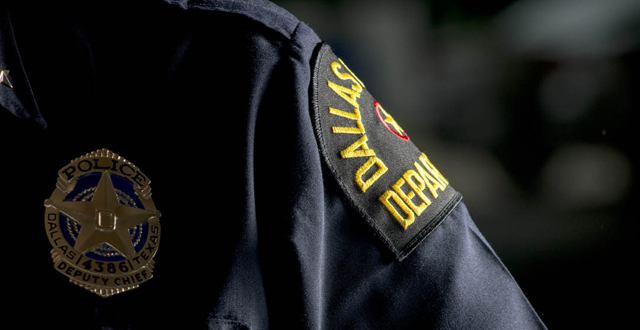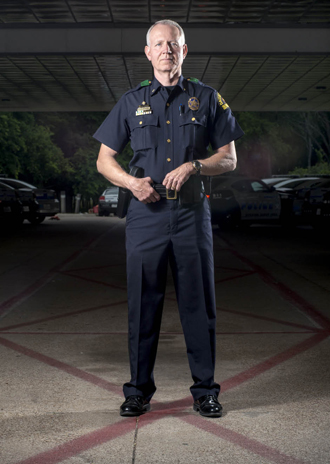The Dallas Police Department recently reassigned Deputy Chief Andrew Acord to the Northeast Police Division, which patrols Lake Highlands and much of East Dallas. Before the move, Acord oversaw the Dallas Police Narcotics Division. During his first week on the job, two major manhunts launched in the White Rock area — one, for the perpetrators of the violent murder of an elderly homeowner in the Dixon Branch area and the other for a serial rapist in the Lake Highlands area.
A lot of drama during your first few weeks, huh?
After the immediate chaos settled, it became a joke of sorts because the staff originally had told me that it was a good place to work, that things were relatively routine around here. Not too much action. But the work came fast and didn’t let up for the first month or six weeks or so.
Is it surprising that the suspects in these cases were apprehended relatively quickly?
In the case of the sexual assailant, we felt confident that he was still in the area. We had some very capable people working the case — several different divisions — and we had the cooperation of the citizens. There was a sense of urgency, wanting to protect the community from further assault, so there was a confidence there. There was a different dynamic to the homicide case. For one, of course, the homicide unit oversaw the investigation, though we did put resources into that investigation.
It seems as if social media was beneficial in both these cases. How has new media affected police work?
Social media is beneficial in two major ways. It allows us to push out information quickly. [Suspects in the Dixon Branch homicide were apprehended following both a social-media based call for information and a YouTube video showing the suspects using the victim’s credit card]. It also allows us to tell the public about various accomplishments of the police department.
[Editor’s note: A recent study named Dallas Police most social-media friendly police department. Read the story here].
How long have you been with DPD?
Thirty three years.
Did you always want to go into law enforcement?
Yes. Since high school.
Did you grow up in Dallas?
No. Houston. I attended Sam Houston and planned to join the Houston Police Department. But then I met my wife. She lived in Richardson. So I followed her here.
Why law enforcement?
I didn’t want to be behind a desk and I wanted to positively impact the community.
What divisions have you worked?
Patrol in the southeast division, communications, SWAT, which wasn’t called SWAT then but the tactical division — it was before Dallas SWAT was famous — internal affairs, then narcotics.
So, leading narcotics, you were like Hank from the AMC’s “Breaking Bad”?
I haven’t seen the show.
You should.
I’ll check it out … the [real-life] narcotics office consisted of disrupting and dismantling drug traffic. Dallas is a hub for distribution.
Why did they move you around so much? It seems you guys move around every few years.
Yes. I think it is so that we are more experienced and well rounded.
When was the last time you chased someone?
It has been a long time, since I was on patrol, which was back in ’87. In fact, the chase wound up at LBJ and Skillman. The suspect got out of the vehicle near there and we chased him on foot. Found him coming out of a manhole cover behind Tom Thumb.
The northeast division has two of Dallas’ highest crime areas. What are your plans for handling that?
This is a large and diverse area. Larger than most surrounding suburbs — it’s an 86-square-mile area with a population of 286,000. It presents more challenging crime areas, but this is an exceptional police division here. This area also has, I believe, more active crime watch and homeowners groups working with police than any other. We are initiating programs with cooperative apartment managers and residents to combat and prevent crime by forming crime watch groups within those communities.
It seems as if there is always a helicopter over Lake Highlands …
The helicopter unit is out of police headquarters. They are very responsive about assisting patrol in capturing crime suspects. There are also preventative patrols.
Do they focus on Forest-Audelia, or how are they designated for preventative patrol?
You would have to ask that department about that.







